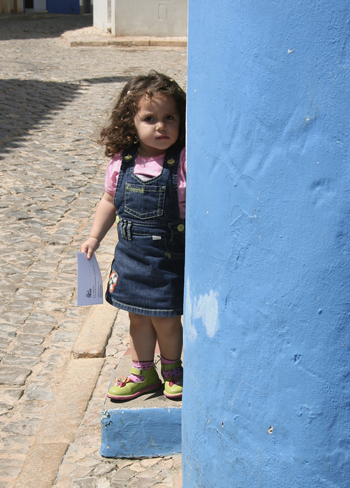
In early elementary school, I started to become aware that I wasn’t part of other kids, so I ended up getting teased or, if I talked, ignored. So, my mother arranged a play date because I had no friends except my dear sister.
I think her name was Carol, but her last name I am sure about: Godsby. I found it odd that her name had “God” in it. I wondered about her family’s relationship to God was since they had the same name. I was young, so I had no notion of the adult’s version of a relationship with God.
Carol told me that I had to brush my teeth for two minutes after lunch or supper, or I would get rotten teeth. I didn’t care about that, so I found it weird to be so worried. I remember saying pretty much nothing even though the mother asked me questions that I hadn’t answers for. I didn’t know what I was supposed to say.
The oddness and discomfort of being at her house was so distressing. I wanted out of there like I was screaming inside–but I was quiet. It felt urgent to have my mother pick me up to rescue me. I wanted to cry, but I didn’t.
She finally came, and as most mothers do, she knew I wasn’t okay, and she asked questions too, but I had no answers. I just hurried into the back seat of our little Renault. I said pretty much nothing except, “I want to go home.”
The social part of school was hell, and I was treated badly for it. I became more aware of things I said and did that would bring on teasing or gossiping. I wanted to talk with other people. I remember once, I asked Zarmina about the braided bracelet on her wrist. She told me that it was a religious thing I didn’t understand. I was thrilled to have said something to someone and she smiled! That smile was what made me remember her.
I wanted to talk because I had so many things I wanted to tell people about, but I became aware that people didn’t like it when I said something, so I learned not to. As I got older, the only people who listened to me talk, talk, talk, were my sister and my mother.
Fast forward to adulthood, and I was in a workplace, dealing with social situations, and dating. All three were fraught with anxiety. I was always so glad to get back to my apartment, and shut them all out as I closed my door. The quiet, the peace of a familiar place, let me breathe.
By now, I was quite aware of the requirement to socialize to participate in dating and to form alliances at work. Dating I figured out the basics, since it was a one-on-one endeavor, but the workplace, the work events and co-worker get togethers really stressed me. I felt like crying and sometimes I did.
But, I was learning. Unfortunately, a part of what I was learning all those years is that people were uncomfortable with me and I with them. Also, over the years, I became lonelier and lonelier.
I avoided every social situation I could because I knew it would go badly. The anxiety leading up to social interaction, even buying something at the corner store, became unbearable. I was frightened every day I had to leave the house.
Trying to learn social skills was like seeing in the dark. The real social training didn’t come until I met hubby. He explained the literal how to, but not overly so that would leave me feeling bad from being so unskilled in human things. He taught and he supported me in situations. I am so thankful for that.
The anxiety is still there, but knowing some of the tools and how they are used in the most literal sense, has helped ease my anxiety.
Here is the article about social anxiety disorder spurred me to write this post.
Thank you for taking the time to write about your recollections and perceptions. I find them all extremely helpful as I parent my 6yo aspie daughter. You are giving voice to many of the things she wishes I knew but doesn’t yet know how to articulate. Thank you.